Imagine a competition where the participants kill it with kindness and everyone walks away a winner.
It’s the spirit of Philanthropitch.
Five Central Texas nonprofits made their case for funding to an audience of 150-plus and a five-judge panel during this fast-pitch contest.
How fast? Each presenter had three minutes to persuade the crowd to invest in their idea.
It all takes place during the annual South by Southwest event in Austin. But the preparation to get there is months in the making, with each finalist working with a coach to refine their message.
Regions Bank was the presenting sponsor of Philanthropitch 2022, awarding a total of nearly $80,000 in grant funding.
“Austin is known as a creative hub, and supporting Philanthropitch offers Regions the opportunity to combine that creativity with being a catalyst for good,” said Stephanie Perryman, market executive for the bank in Austin. “We can empower nonprofits with a vision to address community issues and lift our neighbors in need, whatever those needs may be.”
Get to know a little more about this year’s five Philanthropitch finalists here.
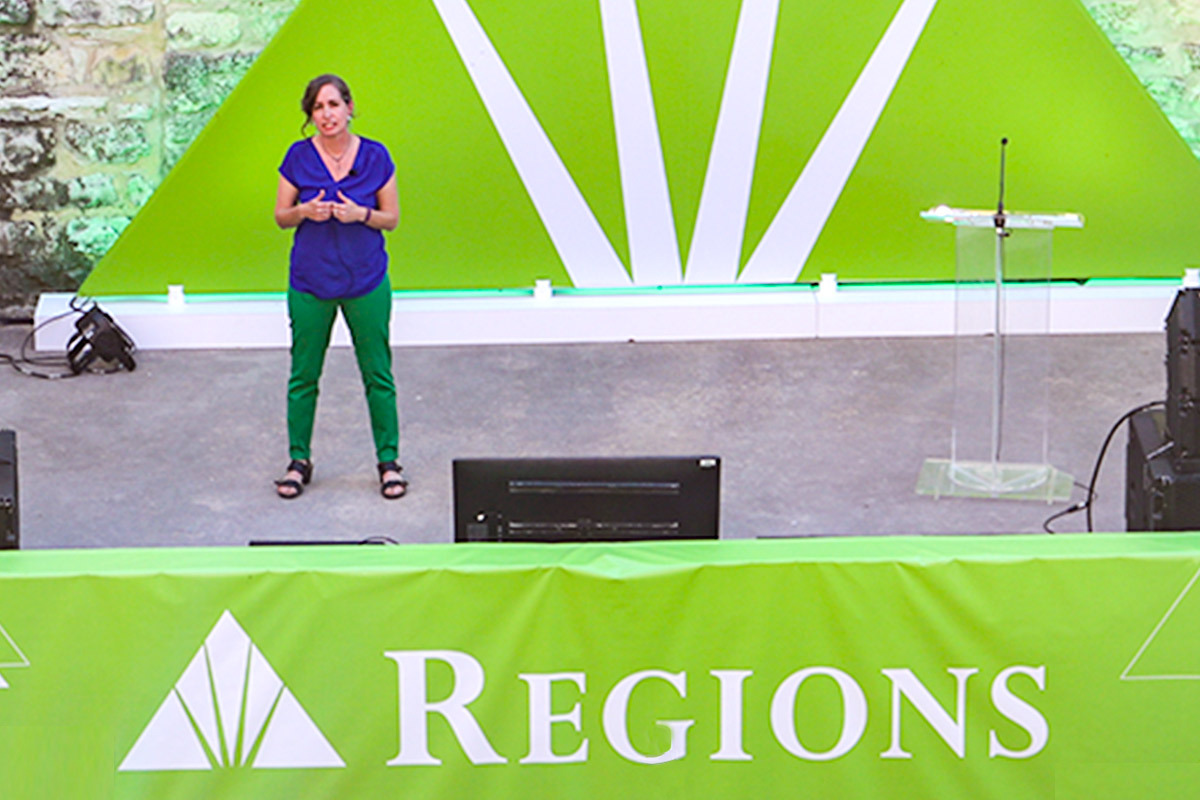 Lauren Zappone Maples
Lauren Zappone Maples
Partners for Education, Agriculture and Sustainability (PEAS):
“I’ve learned through pushing my own barriers and boundaries that we can go a lot farther than we think we can.” – Lauren Zappone Maples
Lauren Zappone Maples has helped elementary students push through barriers since she founded Partners for Education, Agriculture and Sustainability, or PEAS as it’s known, in 2011. Maples’ environmental and teaching background led her to launch the outdoor program, which allows others to enjoy the fruits – and vegetables – of their labor. Harvests are delivered to other nonprofits to support hunger relief.
What started at one school has grown to 19, engaging more than 3,000 students, many who have never gardened before and some with a fear of insects. Remember pushing those boundaries?
“Over time, we see the kids start to grow in their confidence,” said Maples. “They become comfortable in the outdoors. Sometimes, it takes someone else to give you permission to do things. By saying it’s okay to get dirty, we allow space for that to happen.”
And thanks to Philanthropitch, who presented PEAS with $17,500, Maple will also have more space for growth. She’s investing the funds in PEAS’ workforce development pathway to extend edible education programming within their partner schools.
“For us, this means we’ll be able to keep our current intern on through the fall and have him start formal training with our educators. I am grateful to all of the organizers, judges, and participants!”
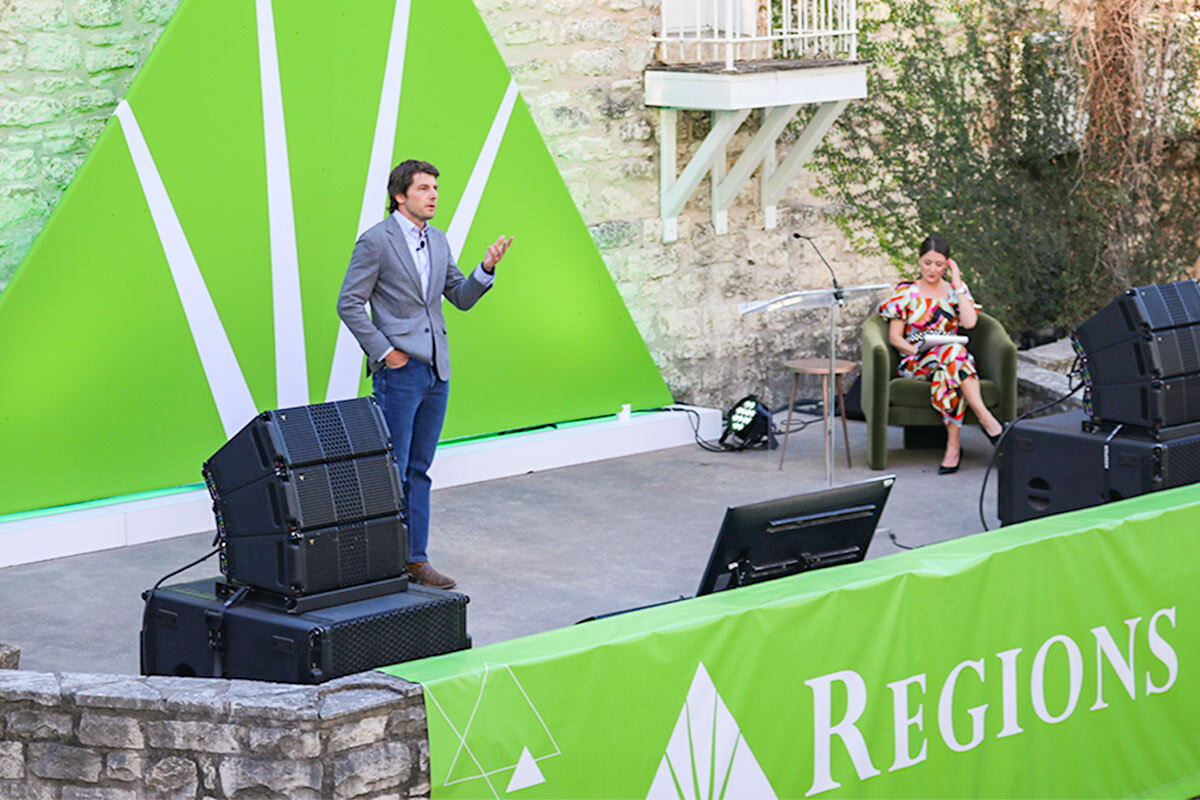 Hudson Baird
Hudson Baird
PelotonU:
“We need other people to help us do hard things. Everyone needs a coach.” –Hudson Baird
Think of it as a matchmaker for higher education. PelotonU is helping adult college students – all of whom have job and family commitments – find a flexible, supportive pathway to earn their degree debt-free.
What’s the meaning behind the nonprofit’s name? When cyclists work as a team, they form a peloton – a group that cuts through challenging headwinds, allowing every ounce of energy to be channeled toward reaching the finish line. And that’s exactly what PelotonU is providing to students as they reach their finish line of graduation.
“College is so confusing and overwhelming, especially if you’re the first in your family to earn a degree,” said Hudson Baird, PelotonU’s executive director. “We’re focused on breaking it down into manageable parts.”
Those parts include matching students with the right college and providing support with the application process, financial aid, college prep coursework, degree selection and more. PeltonU’s personalized coaching model is working, with their students graduating at four times the rate of part-time community college students.
“Our work is trusted relationships that create a secure attachment,” said Baird.
Relationships so deeply rooted that about one-third of PelotonU’s staff are alumni. With its growing staff now at 20, reaching more students was a key part of Baird’s pitch to judges.
“We realized two things during COVID,” he said. “Virtual coaching is just as effective for busy adults as in-person support. Secondly, that meant we could grow beyond Central Texas to serve folks who don’t have other quality educational options.”
The judges agreed, awarding $20,000 to support PelotonU’s growth.
Baird’s response?
“Gratitude for y’all’s investment in each of us, appreciation for the chance to work in a community alongside such incredible nonprofits, and awe for the students we get to serve who have shaped the model and worked hard for the outcomes we get to celebrate.”
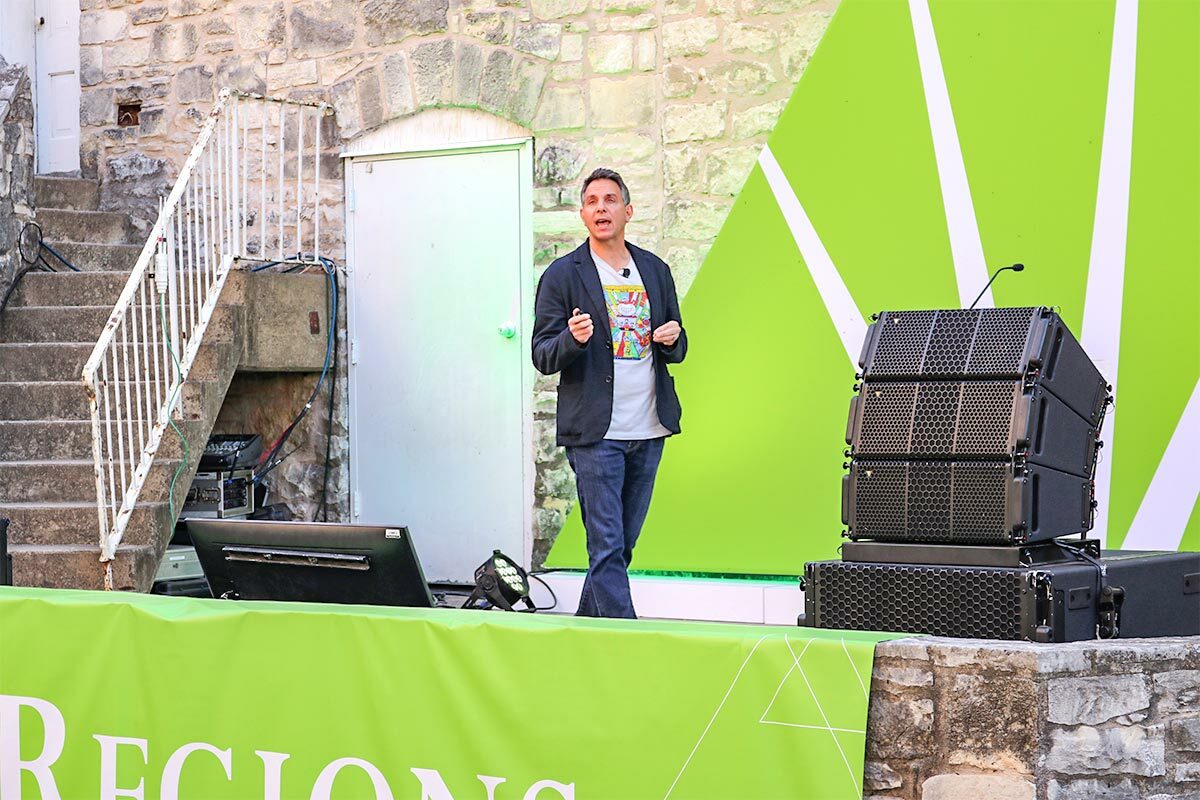 Tom Gimbel
Tom Gimbel
Hi, How Are You? Project
“If there is a silver lining of COVID, it did bring this conversation to the forefront.” –Tom Gimbel
Hi, how are you? It’s a simple question, but the answer often is not.
Tom Gimbel and his wife, Courtney Blanton, founded the Hi, How Are You? Project (HHAYP) to encourage honest answers and remove the stigma around mental health.
“One out of five people in the world is dealing with a diagnosable mental health issue,” said Gimbel. “The statistics are alarming.”
Gimbel and Blanton focus on serving youth ages 12 to 24 with tools that include a free video series called “The Happy Habits.”
“It features 10 simple daily practices that are scientifically proven to reduce stress and increase happiness,” explained Gimbel. “It’s entertaining, not clinical. We’re delivering messaging in a way that will stay with young people.”
And Gimbel’s message stayed with the judges, who awarded HHAYP $12,000.
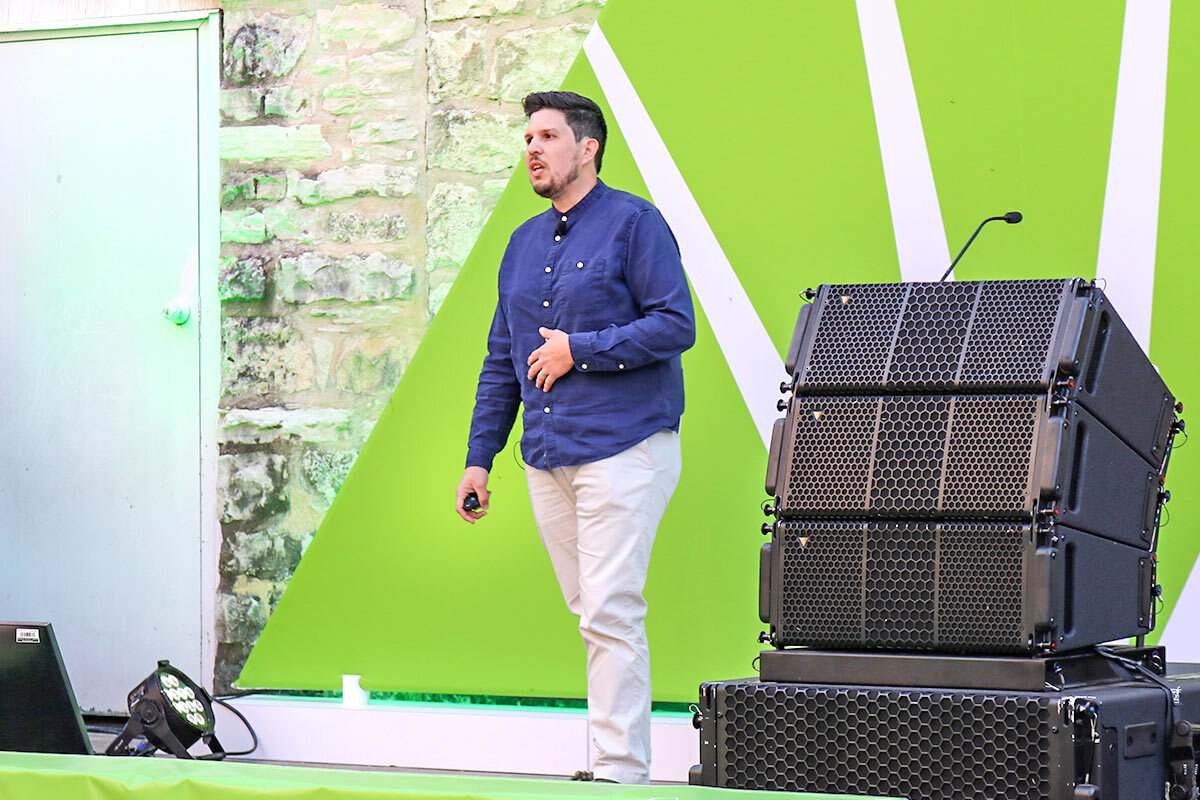 Ryan Beltrán
Ryan Beltrán
Elequa
“We’re encouraging students to play a hero in their own story.” –Ryan Beltrán
Ryan Beltrán’s childhood field trips looked a bit different from those of his classmates.
“My father used to work in industrial supplies,” said Beltrán. “He took me to plants with him, and I saw how to separate the pollutants in water.”
Beltrán tapped into that early knowledge to create Elequa, a nonprofit teaching students about water purification through coagulator kits. Elequa’s curriculum includes water research, engineering, hardware, coding and creative aspects like filmmaking.
“Students can become water heroes and scientists through this hands-on experience,” he said. “They’re learning because we inspire them to do something with this kit.”
Also inspired? The Philanthropitch judging panel, which presented Elequa with $10,000.
“Philanthropitch was such a great experience,” said Beltrán. “We’re finalizing our video curriculum featuring a series to highlight student innovations and collaborations. I can’t wait to share what we can do to make every dollar count that you’ve donated.”
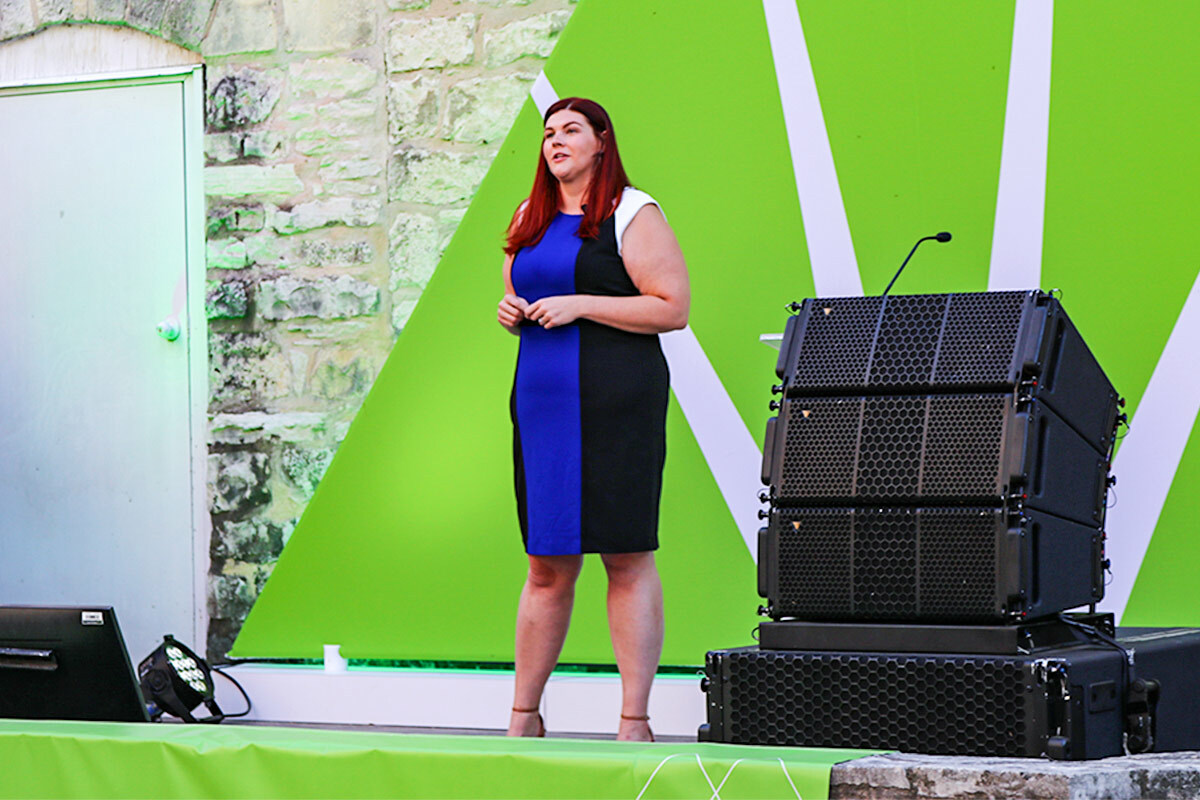 Rachel Hampton
Rachel Hampton
Lone Star Justice Alliance
“We’re helping to fix the economy, reduce incarceration and disrupt racism.” –Rachel Hampton
Justice-involved youth seeking a second chance while thousands of jobs sit unfilled. It’s the issue Rachel Hampton and the Lone Star Justice Alliance (LSJA) team are addressing each day – one person and one position at a time.
“We have to be smart about how we address crime, we have to adjust the system to understand the unique needs of emerging adults” said Hampton, chief mission officer. “It doesn’t make any sense to treat a 17-year-old the same way we treat an adult.”
How is LSJA working to implement change? By training defense attorneys in best practices to represent youth, working with specific industries to offer youth in re-entry employment and training employers who hire them to provide them the tools they need to create a successful and long-lasting relationships.
“We found that employer training was a fundamental missing piece,” said Hampton. “Our employers receive a one-on-one coach to help navigate difficult conversations. You’re going to see much higher employee retention rates with that resource.”
Hampton’s biggest focus during Philanthropitch involved explaining the complex work LJSA does while keeping an eye on that quickly ticking clock.
“To me, these things are so clear; but if I’m a listener who’s never heard this information before, you can’t expect people to already be where you are. I know we’re awesome; I know that we’re great. I just need to convince others.”
She did, with LJSA receiving $25,000 to support their pilot project to connect more youth and employers.
Hampton’s response following months of preparation?
“I was still a little exhausted from the process but very grateful for the experience and the wonderful reception to our organization’s hard work. We can’t wait to get started!”
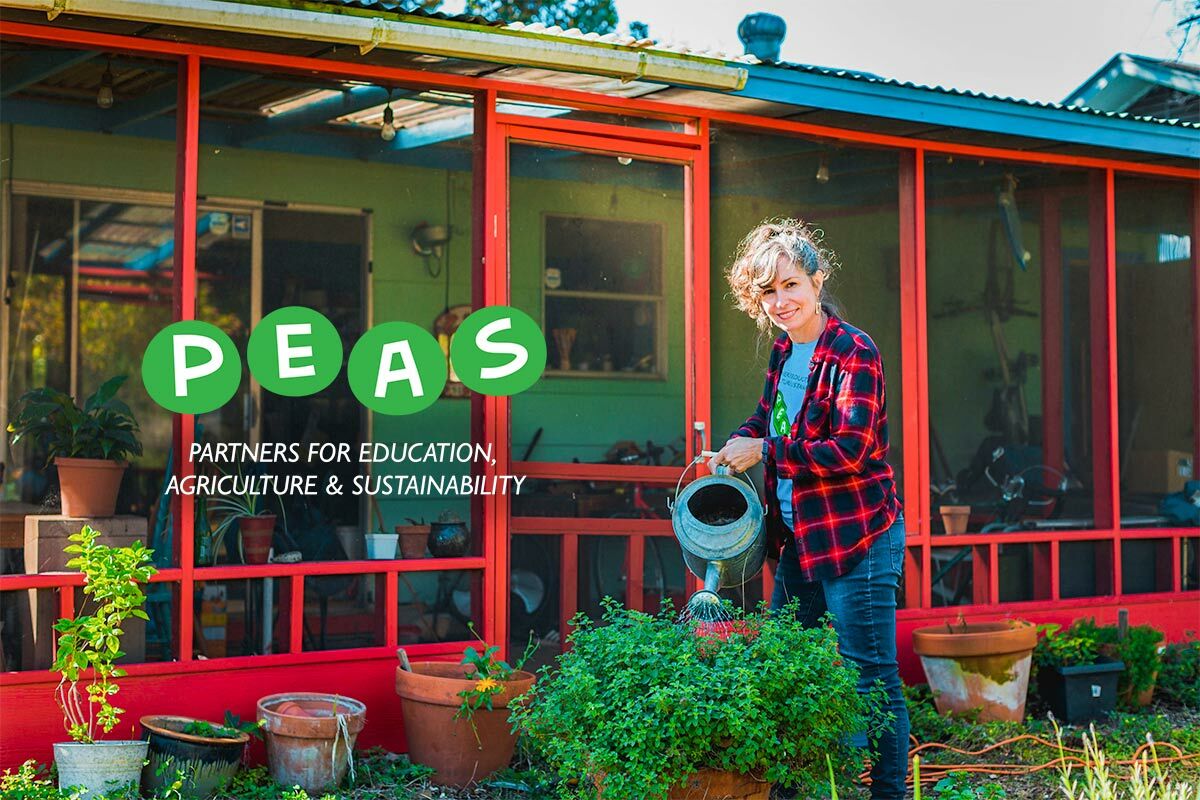
Lauren Zappone Maples - Partners for Education, Agriculture and Sustainability (PEAS)

Waterloo Greenway Symphony Square Sign



Elequa Makewater Classroom

Tom Gimbel - Hi, How Are You? Project

Brett presenting at Panel Discussion

Rachel Hampton - Lone Star Justice Alliance